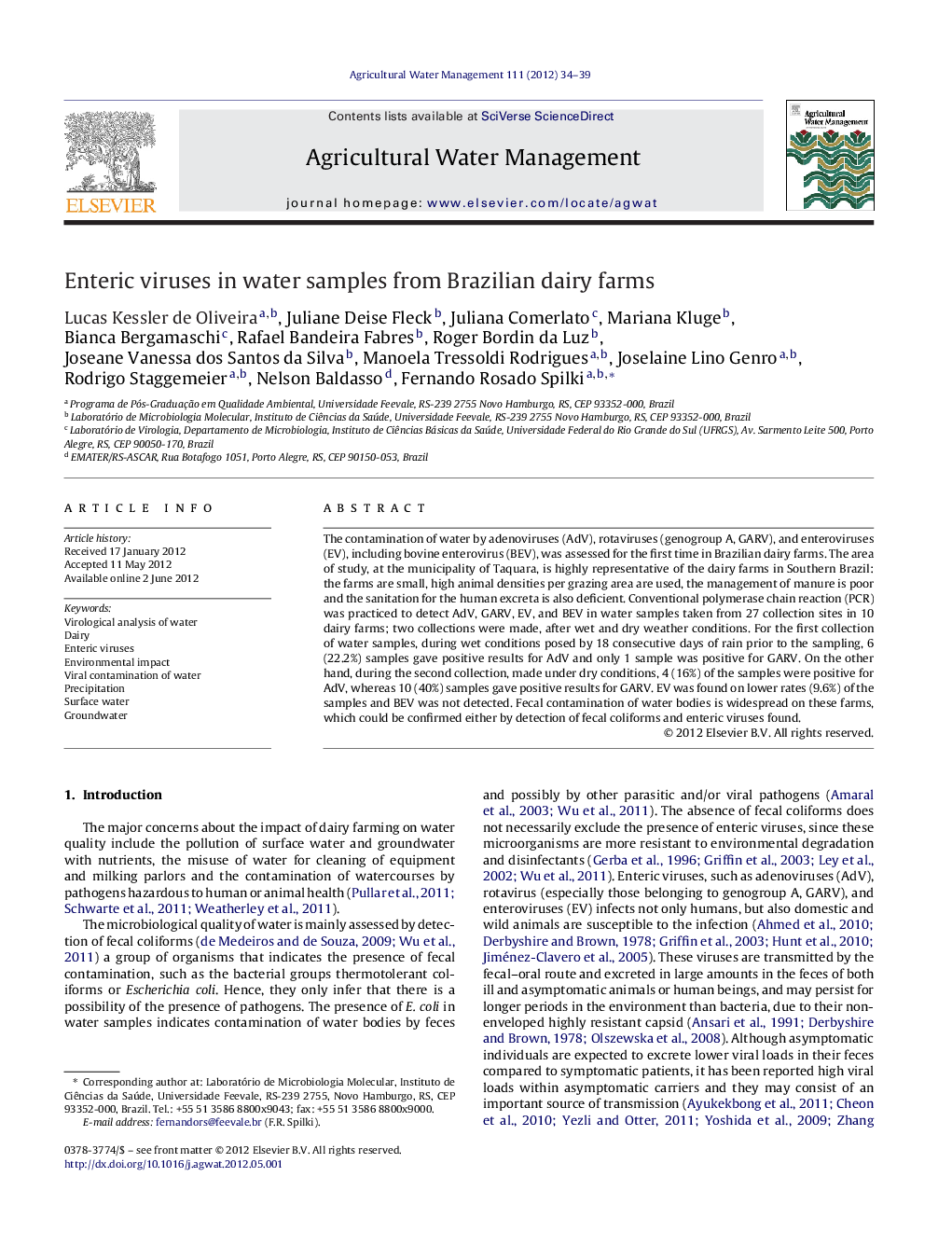| Article ID | Journal | Published Year | Pages | File Type |
|---|---|---|---|---|
| 4479094 | Agricultural Water Management | 2012 | 6 Pages |
The contamination of water by adenoviruses (AdV), rotaviruses (genogroup A, GARV), and enteroviruses (EV), including bovine enterovirus (BEV), was assessed for the first time in Brazilian dairy farms. The area of study, at the municipality of Taquara, is highly representative of the dairy farms in Southern Brazil: the farms are small, high animal densities per grazing area are used, the management of manure is poor and the sanitation for the human excreta is also deficient. Conventional polymerase chain reaction (PCR) was practiced to detect AdV, GARV, EV, and BEV in water samples taken from 27 collection sites in 10 dairy farms; two collections were made, after wet and dry weather conditions. For the first collection of water samples, during wet conditions posed by 18 consecutive days of rain prior to the sampling, 6 (22.2%) samples gave positive results for AdV and only 1 sample was positive for GARV. On the other hand, during the second collection, made under dry conditions, 4 (16%) of the samples were positive for AdV, whereas 10 (40%) samples gave positive results for GARV. EV was found on lower rates (9.6%) of the samples and BEV was not detected. Fecal contamination of water bodies is widespread on these farms, which could be confirmed either by detection of fecal coliforms and enteric viruses found.
► The article describes the first survey of viral markers of water quality in Brazilian dairy farms. ► The contamination of surface and groundwater by enteric viruses was assessed. ► Results suggest a relationship between the amount of precipitation and viral contamination detected.
